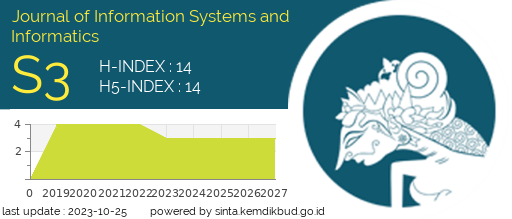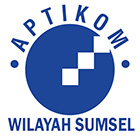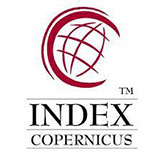User Experience in Cloud Computing Services-Based LMS: a Case Study
Abstract
This research explores user experiences with Learning Management Systems (LMS) in the context of online education, focusing on the Google Classroom application. Conducted at SDIT Salsabila 4 Jetis, Indonesia, the study navigates challenges faced during the transition to remote learning, particularly amid the COVID-19 pandemic. Evaluating features such as media upload, assignment scheduling, quizzes, and grading, the research identifies key areas of user engagement that require optimization. Effective teacher-student communication emerged as pivotal, underlining the need for tailored training programs to enhance teachers' proficiency with LMS features. Network stability also significantly influenced user experience. The study's insights emphasize the LMS's potential as a powerful educational tool and highlight specific areas for improvement. Recommendations include broader data collection across institutions, facilitating a nuanced understanding of LMS adoption curves. Moreover, targeted training initiatives are crucial, ensuring educators' comprehensive grasp of LMS functionalities. These findings provide a foundational framework for refining online education practices, promoting a more seamless and effective learning environment for educators and students alike.
Downloads
References
President RI, UU No 20 Tahun 2003, Tentang Undang-undang (UU) tentang Sistem Pendidikan Nasional. 2003. Accessed: Apr. 24, 2021. [Online]. Available: https://peraturan.bpk.go.id/Home/Details/43920/uu-no-20-tahun-2003
Didier Houssin, “World Health Organization (WHO): COVID-19 IHR Emergency Committee.” Accessed: May 30, 2021. [Online]. Available: https://www.who.int/groups/covid-19-ihr-emergency-committee
Mendikbud, Surat Edaran Mendikbud No 4 Tahun 2020, Tentang Pelaksanaan Kebijakan Pendidikan Dalam Masa Darurat Penyebaran Corona Virus Disease (Covid-19). 2020. Accessed: Mar. 24, 2021. [Online]. Available: https://pusdiklat.kemdikbud.go.id/surat-edaran-mendikbud-no-4-tahun-2020-tentang-pelaksanaan-kebijakan-pendidikan-dalam-masa-darurat-penyebaran-corona-virus-disease-covid-1-9/
P. M. Mell and T. Grance, “The NIST definition of cloud computing,” Gaithersburg, MD, 2011. doi: 10.6028/NIST.SP.800-145.
G. E. Zgheib and N. Dabbagh, “Social media learning activities (Smla): Implications for design,” Online Learning Journal, vol. 24, no. 1, pp. 50–66, 2020, doi: 10.24059/olj.v24i1.1967.
M. Ouadoud, A. Nejjari, M. Y. Chkouri, and K. E. El-Kadiri, “Learning Management System and the Underlying Learning Theories,” Lecture Notes in Networks and Systems, vol. 37, pp. 732–744, 2018, doi: 10.1007/978-3-319-74500-8_67.
R. Kraleva, M. Sabani, and V. Kralev, “An analysis of some learning management systems,” Int J Adv Sci Eng Inf Technol, vol. 9, no. 4, pp. 1190–1198, 2019.
Dapodikbud, “SEKOLAH KITA - (20403526) SD IT SALSABILA JETIS,” 2021. Accessed: Feb. 02, 2021. [Online]. Available: https://sekolah.data.kemdikbud.go.id/index.php/chome/profil/9026bd5c-2ef5-e011-94e4-8139dfcf6d0f
Z. Z. A. Thaariq, “The Use of Social Media as Learning Resources to Support the New Normal,” Teknodika, vol. 18, no. 2, p. 80, 2020, doi: 10.20961/teknodika.v18i2.42181.
J. A. N. Ansari and N. A. Khan, “Exploring the role of social media in collaborative learning the new domain of learning,” Smart Learning Environments, vol. 7, no. 1, 2020, doi: 10.1186/s40561-020-00118-7.
C. K. Chen and M. N. Almunawar, “Cloud learning management system in higher education,” in Opening Up Education for Inclusivity Across Digital Economies and Societies, IGI Global, 2019, pp. 29–51.
M. Ouadoud, A. Nejjari, M. Y. Chkouri, and K. E. El Kadiri, “Educational modeling of a learning management system,” in 2017 international conference on electrical and information technologies (ICEIT), IEEE, 2017, pp. 1–6.
R. Mahajan, P. Gupta, and T. Singh, “Massive Open Online Courses: Concept and Implications,” Indian Pediatr, vol. 56, no. 6, pp. 489–495, 2019, doi: 10.1007/s13312-019-1575-6.
L. McLoughlin and F. Magnoni, “The Move-Me project: reflecting on xMOOC and cMOOC structure and pedagogical implementation,” in Beyond the language classroom: researching MOOCs and other innovations, 2017, pp. 59–69. doi: 10.14705/rpnet.2017.mooc2016.671.
R. Montes-Rodríguez, J. B. Martínez-Rodríguez, and A. Ocaña-Fernández, “Case study as a research method for analyzing MOOCs: Presence and characteristics of those case studies in the main scientific databases,” International Review of Research in Open and Distance Learning, vol. 20, no. 3, pp. 59–79, 2019, doi: https://doi.org/10.19173/irrodl.v20i4.4299.
J. Koskinen, A. Kairikko, and M. Suonpää, “Hybrid MOOCs Enabling Global Collaboration Between Learners,” in Proceedings of the Seventh European MOOC Stakeholder Summit (EMOOCs 2021), 2021, pp. 35–48. doi: https://doi.org/10.25932/publishup-51030.
J. P. Espada, C. C. Rodríguez, V. García-Díaz, and R. G. Crespo, “Method for analysing the user experience in MOOC platforms,” in 2014 International Symposium on Computers in Education (SIIE), IEEE, 2014, pp. 157–162.
O. Korableva, T. Durand, O. Kalimullina, and I. Stepanova, “Studying user satisfaction with the MOOC platform interfaces using the example of coursera and open education platforms,” in ACM International Conference Proceeding Series, 2019, pp. 26–30. doi: 10.1145/3322134.3322139.
A. Nurhudatiana and A. S. Caesarion, “Exploring User Experience of Massive Open Online Courses (MOOCs) A Case Study of Millennial Learners in Jakarta, Indonesia,” in Proceedings of the 2020 9th International Conference on Educational and Information Technology, 2020, pp. 44–49.
H. Najafi, C. Rolheiser, L. Harrison, and W. Heikoop, “Connecting learner motivation to learner progress and completion in massive open online courses,” Canadian Journal of Learning and Technology/La revue canadienne de l’apprentissage et de la technologie, vol. 44, no. 2, 2018.
P. Kaewsaiha, “Usability of the learning management system and choices of alternative,” in International Conference on Education, Psychology, and Social Sciences, 2019, pp. 252–259.
M. Zhu, C. Bonk, and A. Sari, “Massive open online course instructor motivations, innovations, and designs: Surveys, interviews, and course reviews,” Canadian Journal of Learning and Technology/La revue canadienne de l’apprentissage et de la technologie, vol. 45, no. 1, 2019.
T. Snoussi, “Learning Management System in Education: Opportunities and Challenges,” International Journal of Innovative Technology and Exploring Engineering, vol. 8, no. 12S, pp. 664–667, 2019, doi: 10.35940/ijitee.l1161.10812s19.
M. Abdel-Basset, M. Mohamed, and V. Chang, “NMCDA: A framework for evaluating cloud computing services,” Future Generation Computer Systems, vol. 86, pp. 12–29, 2018.
E. A. Fadhil and S. Toker, “Cloud Computing Applications in Social Work and Education,” in Handbook of Research on Cyber Approaches to Public Administration and Social Policy, IGI Global, 2022, pp. 28–54.
A. Rashid and A. Chaturvedi, “Cloud Computing Characteristics and Services A Brief Review,” International Journal of Computer Sciences and Engineering, vol. 7, no. 2, pp. 421–426, 2019, doi: 10.26438/ijcse/v7i2.421426.
P. R. Kumar, P. H. Raj, and P. Jelciana, “Exploring Data Security Issues and Solutions in Cloud Computing,” in Procedia Computer Science, 2018, pp. 691–697. doi: 10.1016/j.procs.2017.12.089.
 Abstract views: 1924 times
Abstract views: 1924 times Download PDF: 1019 times
Download PDF: 1019 times
Copyright (c) 2023 Journal of Information Systems and Informatics

This work is licensed under a Creative Commons Attribution 4.0 International License.
- I certify that I have read, understand and agreed to the Journal of Information Systems and Informatics (Journal-ISI) submission guidelines, policies and submission declaration. Submission already using the provided template.
- I certify that all authors have approved the publication of this and there is no conflict of interest.
- I confirm that the manuscript is the authors' original work and the manuscript has not received prior publication and is not under consideration for publication elsewhere and has not been previously published.
- I confirm that all authors listed on the title page have contributed significantly to the work, have read the manuscript, attest to the validity and legitimacy of the data and its interpretation, and agree to its submission.
- I confirm that the paper now submitted is not copied or plagiarized version of some other published work.
- I declare that I shall not submit the paper for publication in any other Journal or Magazine till the decision is made by journal editors.
- If the paper is finally accepted by the journal for publication, I confirm that I will either publish the paper immediately or withdraw it according to withdrawal policies
- I Agree that the paper published by this journal, I transfer copyright or assign exclusive rights to the publisher (including commercial rights)






















_1.png)












